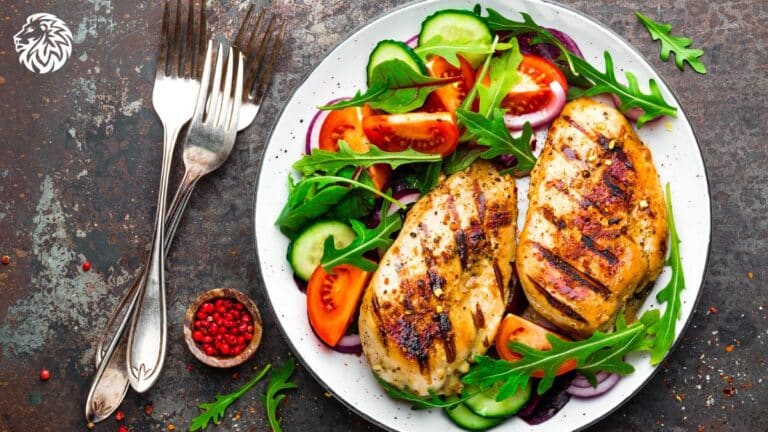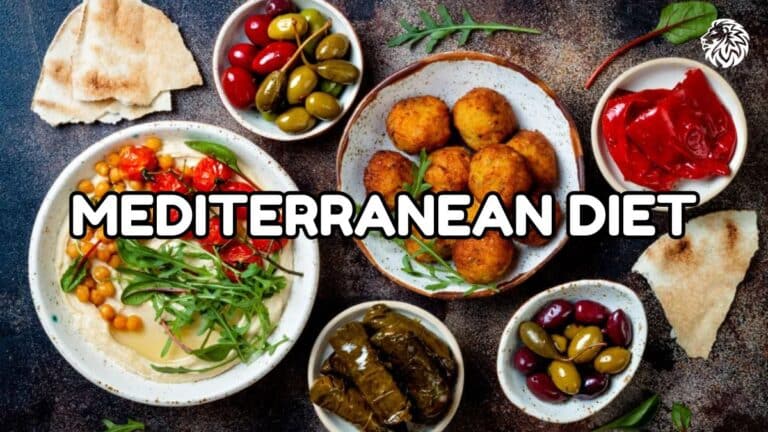The Mediterranean diet, rooted in the traditional eating habits of countries bordering the Mediterranean Sea, has emerged as one of the most popular and beneficial dietary plans in the world. Characterized by a rich abundance of fruits, vegetables, whole grains, olive oil, and fish, this diet is celebrated not only for its flavorful palette but also for its numerous health benefits. Among these, weight loss is a significant advantage, drawing attention from health enthusiasts and those seeking a sustainable way to manage their weight.
The popularity of the Mediterranean diet stems from its effectiveness in promoting heart health, reducing the risk of chronic diseases, and its alignment with a balanced, enjoyable eating pattern. Unlike restrictive diets that focus on cutting out food groups, the Mediterranean diet emphasizes the quality of ingredients and the pleasure of eating wholesome, natural foods.
This article aims to explore how one can leverage the principles of the Mediterranean diet for effective and sustainable weight loss. We will delve into understanding the diet’s key components, how it aligns with the principles of weight loss, and provide practical tips for incorporating this diet into daily life. From meal planning and preparation to overcoming common challenges, this article is structured to offer a comprehensive guide to losing weight healthily and enjoyably through the Mediterranean diet.
Understanding the Mediterranean Diet
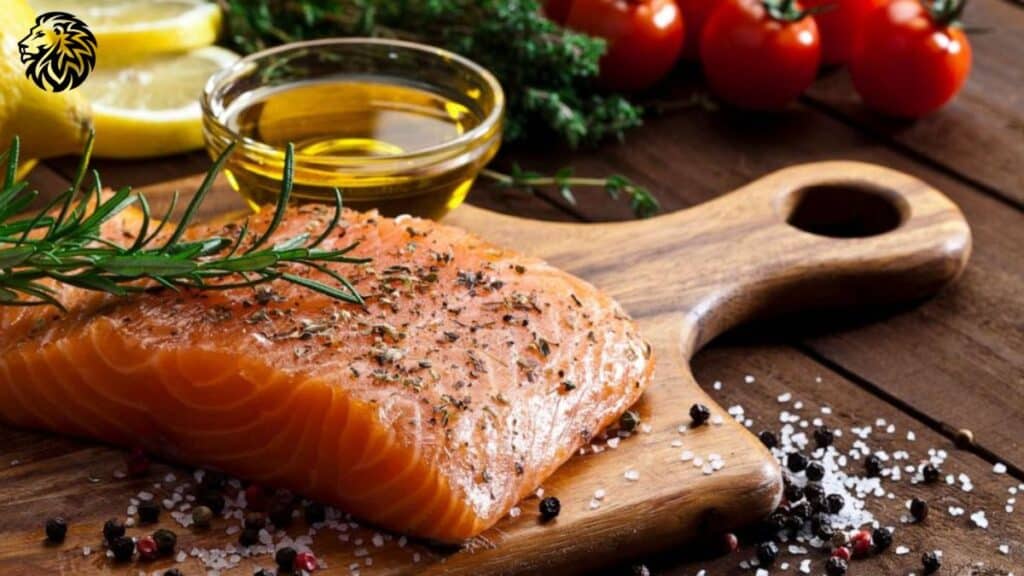
The Mediterranean diet is more than just a meal plan; it’s a cultural and historical embodiment of the eating habits prevalent in countries around the Mediterranean Sea. Originating from regions like Greece, Italy, and Spain, this diet is based on the dietary patterns of these areas during the 1960s, a time when these populations displayed notably low rates of chronic diseases and higher life expectancy compared to other regions.
Definition and Origin
The Mediterranean diet is defined by a high consumption of fruits, vegetables, whole grains, legumes, and nuts; a preference for olive oil as the primary source of fat; moderate amounts of fish, poultry, and dairy; limited intake of red meat; and a moderate consumption of red wine, typically with meals. This diet emerged from the traditional lifestyle of Mediterranean countries, where meals are often prepared with fresh, local ingredients and shared with family and friends.
Key Components
- Fruits and Vegetables: A cornerstone of the diet, offering a rich source of vitamins, minerals, and fiber.
- Whole Grains: Foods like whole wheat bread, pasta, and brown rice provide essential nutrients and help in maintaining a healthy weight.
- Olive Oil: Used as the primary fat source, rich in monounsaturated fats, beneficial for heart health.
- Fish: Preferred over red meats, fish is a key protein source, rich in omega-3 fatty acids.
- Moderate Wine Consumption: Often included with meals, providing potential heart health benefits when consumed in moderation.
Comparison with Other Diets
The Mediterranean diet differs from other popular diets in several key aspects:
- Nutritional Balance: Unlike low-carb or high-protein diets, the Mediterranean diet does not promote the exclusion of any major food groups. It offers a balanced intake of macronutrients.
- Sustainability: It is considered more sustainable and less restrictive than diets like keto or paleo, making it easier to adopt as a long-term lifestyle choice.
- Health Benefits: While many diets focus on weight loss, the Mediterranean diet is also linked to reduced risks of heart disease, stroke, and certain types of cancer.
In summary, the Mediterranean diet stands out for its balance, variety, and emphasis on whole foods, making it a nutritionally rich and sustainable option for those seeking a healthier lifestyle and effective weight management.
Principles of Weight Loss

Weight loss, at its core, can be simplified into a few fundamental principles. Understanding these concepts is crucial for anyone looking to lose weight effectively and healthily.
Basic Principles of Weight Loss
- Caloric Deficit: The most fundamental principle of weight loss is creating a caloric deficit, meaning consuming fewer calories than the body burns. This can be achieved through diet, exercise, or a combination of both.
- Balanced Nutrition: It’s not just about eating less, but also about eating right. A balanced diet that includes a variety of nutrients is essential for maintaining health while losing weight.
- Regular Physical Activity: Incorporating exercise helps boost metabolism, burn calories, and build muscle mass, contributing to a healthier weight loss.
- Consistency and Patience: Weight loss is a gradual process. Consistent adherence to a balanced diet and regular exercise is key.
Alignment with the Mediterranean Diet
The Mediterranean diet aligns well with these principles:
- Caloric Control: The diet is rich in fruits, vegetables, and whole grains, which are lower in calories and high in fiber, making it easier to create a caloric deficit without feeling deprived.
- Nutritional Balance: It provides a well-rounded nutritional profile, including healthy fats, proteins, and carbohydrates, ensuring the body receives all the nutrients it needs.
- Sustainable Eating Habits: The emphasis on fresh, whole foods and the enjoyment of meals makes it a sustainable and enjoyable diet, promoting long-term adherence.
Importance of Portion Control and Mindful Eating
- Portion Control: Even healthy foods can contribute to weight gain if eaten in excess. Portion control is essential in the Mediterranean diet, ensuring that caloric intake is in line with weight loss goals.
- Mindful Eating: This diet encourages eating slowly and savoring each bite, which can lead to better recognition of hunger and fullness cues, preventing overeating.
The Mediterranean diet’s alignment with the basic principles of weight loss, coupled with its focus on portion control and mindful eating, makes it an effective and sustainable approach for long-term weight management.
Adapting the Mediterranean Diet for Weight Loss

While the Mediterranean diet is inherently healthy, adapting it specifically for weight loss requires some strategic adjustments. Focusing on portion control, emphasizing certain foods, and moderating others can enhance the diet’s effectiveness for shedding pounds.
- Adjusting Portion Sizes
- Measuring Servings: Use measuring cups or scales to keep track of serving sizes, ensuring you’re not unintentionally overeating.
- Visual Guides: Familiarize yourself with visual cues for portion sizes (e.g., a serving of meat should be about the size of a deck of cards).
- Mindful Eating Practices: Eating slowly and without distractions can help you recognize fullness signals, preventing overeating.
- Emphasizing Low-Calorie, High-Fiber Foods
- Fruits and Vegetables: These should form the bulk of your meals. They are low in calories but high in volume, helping to fill you up with fewer calories.
- Whole Grains: Opt for whole grains like quinoa, brown rice, and whole wheat pasta, which are more filling and have a lower glycemic index compared to refined grains.
- Legumes: Incorporate beans, lentils, and chickpeas, which are rich in protein and fiber, aiding in satiety and weight control.
- Reducing or Moderating High-Calorie Components
- Olive Oil: While healthy, olive oil is calorie-dense. Use it sparingly – for instance, try drizzling a tablespoon on salads instead of free pouring.
- Nuts and Seeds: These are excellent sources of healthy fats but are also high in calories. Limit your intake to a small handful per day.
- Cheese and Yogurt: Choose lower-fat options and be mindful of portion sizes.
- Incorporating Lean Proteins
- Fish and Poultry: Opt for lean protein sources like fish and chicken more often than red meats. These provide essential nutrients without excessive calories.
- Moderate Alcohol Consumption
- Wine: If you choose to drink wine, do so in moderation. Limiting alcohol consumption can significantly reduce caloric intake.
By making these adjustments, you can tailor the Mediterranean diet to not only reap its health benefits but also effectively use it as a tool for weight loss. Remember, the key is to enjoy a variety of foods in the right proportions and to maintain a balanced approach to eating.
Meal Planning and Preparation

Adopting the Mediterranean diet for weight loss involves thoughtful meal planning and preparation. Here’s a sample one-week meal plan followed by tips for meal prepping and snack suggestions.
Sample One-Week Mediterranean Diet Meal Plan
Day 1:
- Breakfast: Greek yogurt with honey and walnuts.
- Lunch: Quinoa salad with tomatoes, cucumbers, feta cheese, and olives.
- Dinner: Grilled salmon with a side of roasted vegetables.
Day 2:
- Breakfast: Whole grain toast with avocado and a poached egg.
- Lunch: Lentil soup with a side of whole grain bread.
- Dinner: Baked chicken with a mixed green salad.
Day 3:
- Breakfast: Oatmeal topped with sliced almonds and berries.
- Lunch: Tuna salad stuffed in a whole wheat pita.
- Dinner: Vegetable stir-fry with tofu and brown rice.
Day 4:
- Breakfast: Smoothie with spinach, banana, and Greek yogurt.
- Lunch: Tomato and mozzarella salad with whole grain bread.
- Dinner: Whole wheat pasta with a tomato-based sauce and a side salad.
Day 5:
- Breakfast: Scrambled eggs with spinach and tomatoes.
- Lunch: Chickpea and vegetable salad.
- Dinner: Grilled shrimp with quinoa and steamed broccoli.
Day 6:
- Breakfast: Fresh fruit salad with a handful of nuts.
- Lunch: Hummus and vegetable wrap.
- Dinner: Roasted chicken with sweet potatoes and green beans.
Day 7:
- Breakfast: Cottage cheese with fresh fruit.
- Lunch: Mediterranean vegetable soup with a side of whole grain toast.
- Dinner: Baked cod with a side of asparagus and a small portion of polenta.
Meal Prepping Tips
- Cook in Bulk: Prepare grains like quinoa or brown rice in large quantities to use throughout the week.
- Pre-Cut Vegetables: Chop vegetables in advance to save time on busy days.
- Utilize Leftovers: Plan to use leftovers creatively – for example, roasted chicken can be added to salads or wraps for lunches.
- Portion Control: Pre-portion meals into containers to avoid overeating.
- Plan for Variety: Keep a variety of spices, herbs, and condiments on hand to add different flavors to your meals, preventing monotony.
Healthy, Mediterranean-Style Snacks
- Nuts and Seeds: A small handful of almonds, walnuts, or sunflower seeds.
- Vegetables and Hummus: Sliced cucumbers, bell peppers, or carrots with a serving of hummus.
- Greek Yogurt: Plain Greek yogurt with a bit of honey and fruit.
- Olives: A small bowl of olives is a tasty and satisfying snack.
- Fruit: Fresh fruits like apples, oranges, or a bunch of grapes.
By following this meal plan, incorporating these meal prepping strategies, and snacking wisely, you can effectively manage your weight while enjoying the rich flavors of the Mediterranean diet.
Incorporating Physical Activity
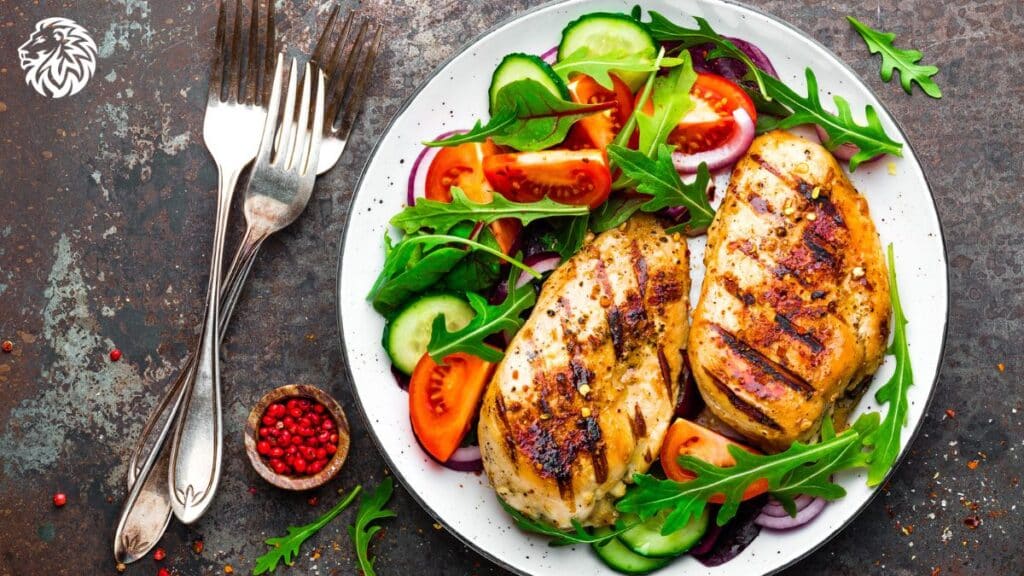
Physical activity is a vital component of any weight loss strategy, complementing dietary changes to improve overall health and accelerate the process of shedding pounds. When combined with the Mediterranean diet, exercise can significantly enhance weight loss and contribute to long-term health benefits.
The Role of Exercise in Weight Loss
- Enhances Caloric Deficit: Exercise burns calories, aiding in creating a larger caloric deficit in addition to dietary changes.
- Boosts Metabolism: Regular physical activity increases metabolic rate, helping the body burn more calories at rest.
- Builds Muscle Mass: Strength training increases lean muscle mass, which burns more calories than fat, even when at rest.
- Improves Overall Health: Exercise benefits cardiovascular health, mental well-being, and can reduce the risk of chronic diseases.
Types of Physical Activities Complementing the Mediterranean Diet
- Aerobic Exercises: Activities like brisk walking, jogging, cycling, and swimming are excellent for heart health and calorie burning.
- Strength Training: Incorporating two to three days of strength training per week can build muscle and increase metabolism. This can include bodyweight exercises, free weights, or resistance bands.
- Flexibility and Balance Training: Yoga and Pilates improve flexibility, core strength, and balance, complementing the other forms of exercise.
- Leisure Activities: The Mediterranean lifestyle emphasizes the joy of movement. Activities like hiking, dancing, or playing sports with family or friends can be both enjoyable and beneficial for weight loss.
Balancing Diet and Exercise for Optimal Weight Loss
- Consistency: Aim for a consistent exercise routine, targeting at least 150 minutes of moderate aerobic activity or 75 minutes of vigorous aerobic activity per week, along with strength training.
- Listen to Your Body: Adjust your exercise intensity based on your energy levels. The Mediterranean diet is balanced but may require adjustments based on increased physical activity.
- Nutritional Support: Ensure your diet supports your activity level. Include adequate protein for muscle repair, complex carbohydrates for energy, and healthy fats for overall well-being.
- Hydration: Stay well-hydrated, especially around workout times.
- Rest and Recovery: Allow time for rest and recovery. Overtraining can lead to fatigue and increased risk of injury.
By combining the Mediterranean diet with a well-rounded exercise regimen, you create a powerful duo for not only losing weight but also for building a healthier, more active lifestyle.
Overcoming Challenges

Adopting the Mediterranean diet can come with its own set of challenges and misconceptions. Understanding these hurdles and preparing strategies to overcome them can make the transition smoother and more sustainable.
Common Challenges and Misconceptions
- Perceived Cost: There’s a misconception that the Mediterranean diet is expensive due to its emphasis on fresh produce and seafood.
- Time Constraints: Preparing fresh, home-cooked meals can be daunting for those with busy schedules.
- Availability of Ingredients: In some regions, finding Mediterranean-specific ingredients like certain seafood, cheeses, or olive oil can be challenging.
- Adapting Family Meals: Transitioning the entire family to a new diet can be difficult, especially if there are picky eaters.
- Dining Out: Finding Mediterranean-friendly options while dining out may seem challenging.
- Misunderstanding Portion Sizes: Some may struggle with understanding appropriate portion sizes for various foods within the diet.
Solutions for Common Obstacles
- Cost-Effective Strategies:
- Buy fruits and vegetables that are in season or frozen.
- Opt for canned fish like sardines or tuna as a cheaper alternative to fresh fish.
- Purchase whole grains and legumes in bulk.
- Time Management:
- Utilize meal prepping: dedicate a few hours on the weekend to prepare meals for the week.
- Cook one-pot meals or use a slow cooker for convenience.
- Ingredient Substitutions:
- Substitute hard-to-find ingredients with locally available ones. For example, use local fish instead of Mediterranean-specific varieties.
- Explore ethnic stores or online markets for specific ingredients.
- Family-Friendly Adaptations:
- Introduce changes gradually. Incorporate familiar elements into Mediterranean-style dishes.
- Involve family members in meal planning and preparation to make them more receptive to new foods.
- Dining Out Solutions:
- Look for dishes that center around vegetables, grains, and lean proteins.
- Ask for dressings and sauces on the side to control portions.
- Avoid fried foods or dishes heavy in cream or cheese.
- Understanding Portion Sizes:
- Use measuring tools or visual cues (e.g., a fist-sized serving for carbohydrates) to get a handle on portion sizes.
- Pay attention to hunger and fullness cues to avoid overeating.
By addressing these challenges with practical solutions, adhering to the Mediterranean diet can become more manageable and enjoyable, paving the way for successful, long-term adherence and weight management.
Success Stories and Case Studies
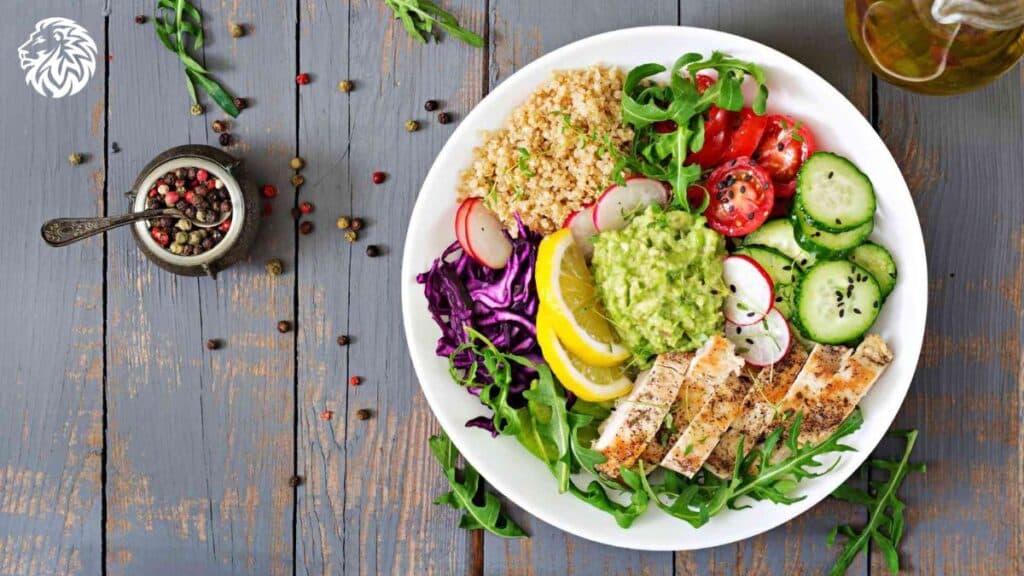
The Mediterranean diet has been the foundation for many successful weight loss stories. These real-life examples not only provide inspiration but also offer practical insights into how different individuals have adapted the diet to meet their weight loss goals.
Example 1: Sarah’s Journey
- Background: Sarah, a 35-year-old office worker, struggled with weight fluctuation for years.
- Strategy: She switched to the Mediterranean diet, focusing on whole foods and eliminating processed foods.
- Implementation: Sarah began meal prepping on weekends, ensuring she had healthy options throughout the week. She also started walking for 30 minutes each day.
- Results: Over six months, Sarah lost 20 pounds and reported feeling more energetic and less bloated.
- Tips: Sarah suggests starting with small changes, like introducing more vegetables into meals and gradually reducing red meat consumption.
Example 2: Mark’s Transformation
- Background: Mark, a 50-year-old with a family history of heart disease, needed to lose weight and improve his heart health.
- Strategy: He adopted the Mediterranean diet, focusing on fish, olive oil, and plenty of fruits and vegetables, while also moderating his wine consumption.
- Implementation: Mark incorporated more home-cooked meals and reduced eating out. He took up cycling on weekends.
- Results: After a year, Mark lost 30 pounds and his cholesterol levels improved significantly.
- Tips: He emphasizes the importance of consistency and finding physical activities that you enjoy.
Example 3: Emily’s Weight Loss
- Background: Emily, a recent college graduate, found herself at her heaviest and decided to make a change.
- Strategy: She chose the Mediterranean diet for its variety and balance.
- Implementation: Emily started to cook more at home, replacing red meat with fish and snacking on nuts and fruits instead of processed snacks.
- Results: In eight months, she lost 25 pounds and gained a newfound appreciation for cooking.
- Tips: Emily recommends experimenting with herbs and spices to keep meals interesting and flavorful.
General Observations from These Case Studies
- Gradual Changes: A common theme is the importance of making gradual dietary changes rather than drastic overhauls.
- Enjoyable Physical Activity: Incorporating enjoyable forms of exercise can aid in adherence and overall well-being.
- Home Cooking: Preparing meals at home allows for better control over ingredients and portion sizes.
- Mindful Eating: Being mindful about food choices and eating habits is crucial.
These stories highlight that while the specifics of each journey can vary, the core principles of the Mediterranean diet—balanced eating, enjoying whole, unprocessed foods, and incorporating physical activity—are key to achieving sustainable weight loss and improved health.
Conclusion
The journey through the Mediterranean diet highlights a path not just towards weight loss, but towards a healthier, more balanced lifestyle. This diet, rooted in the eating habits of the Mediterranean region, emphasizes the consumption of whole, nutrient-rich foods like fruits, vegetables, whole grains, lean proteins, and healthy fats, particularly olive oil. It’s not just a diet; it’s a sustainable way of living that encourages enjoying meals with family and friends, savoring each bite, and embracing physical activity for overall well-being.
Key Points Recap
- Health Benefits: The Mediterranean diet is renowned for its health benefits, including heart health, reduced risk of chronic diseases, and effective weight management.
- Sustainable Weight Loss: By focusing on nutrient-dense, whole foods and proper portion sizes, it facilitates sustainable weight loss.
- Lifestyle Integration: Incorporating the diet requires some adjustments, like meal planning and mindful eating, but remains a practical and enjoyable approach to health.
- Physical Activity: A balanced approach to exercise complements the diet for optimal health and weight loss.
- Overcoming Challenges: Common challenges, such as cost and time constraints, can be overcome with strategic planning and adaptations.
Embracing the Mediterranean diet is not just about losing weight; it’s about nurturing your body with wholesome foods and engaging in a lifestyle that promotes overall well-being. The richness and diversity of the diet, coupled with its numerous health benefits, make it an ideal choice for anyone looking to improve their health in a delicious, sustainable way. Remember, the transition to this diet is a journey — it’s about making gradual, sustainable changes rather than seeking quick fixes.
The Mediterranean diet is more than just a path to weight loss—it’s a gateway to a healthier lifestyle. It encourages a balanced approach to eating, regular physical activity, and mindful living. By embracing its principles, you embark on a journey that nurtures not only your body but also your overall quality of life.




